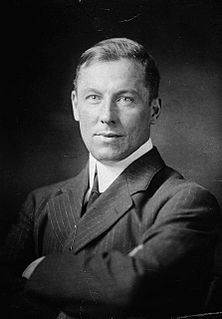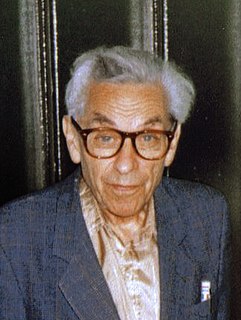A Quote by John Milton
Of four infernal rivers that disgorge/ Into the burning Lake their baleful streams;/Abhorred Styx the flood of deadly hate,/Sad Acheron of sorrow, black and deep;/Cocytus, nam'd of lamentation loud/ Heard on the rueful stream; fierce Phlegethon/ Whose waves of torrent fire inflame with rage./ Far off from these a slow and silent stream,/ Lethe the River of Oblivion rolls/ Her wat'ry Labyrinth whereof who drinks,/ Forthwith his former state and being forgets,/ Forgets both joy and grief, pleasure and pain.
Related Quotes
Thou silent power, whose welcome sway charms every anxious thought away; in whose divine oblivion drown'd, sore pain and weary toil grow mild, love is with kinder looks beguiled, and Grief forgets her fondly cherish'd wound; oh, whither hast thou flown, indulgent god? God of kind shadows and of healing dews, whom dost thou touch with thy Lethaean rod? Around whose temples now thy opiate airs diffuse?
I recently got back from Hiroshima and it was fascinating to me how the Japanese accommodate this paradox. We were talking about this word aware, which on the page looks like "aware," which speaks to both the pain and the beauty of our lives. Being there, what I perceived was that this is a sorrow that is not a grief that one forgets or recovers from, but it is a burning, searing illumination of love for the delicacy and strength of our relations.
Ah, drink again This river that is the taker-away of pain, And the giver-back of beauty! In these cool waves What can be lost?-- Only the sorry cost Of the lovely thing, ah, never the thing itself! The level flood that laves The hot brow And the stiff shoulder Is at our temples now. Gone is the fever, But not into the river; Melted the frozen pride, But the tranquil tide Runs never the warmer for this, Never the colder. Immerse the dream. Drench the kiss. Dip the song in the stream.
Mankind . . . possesses two supreme blessings. First of these is the goddess Demeter, or Earth whichever name you choose to call her by. It was she who gave to man his nourishment of grain. But after her there came the son of Semele, who matched her present by inventing liquid wine as his gift to man. For filled with that good gift, suffering mankind forgets its grief; from it comes sleep; with it oblivion of the troubles of the day. There is no other medicine for misery.
The difference between shallow happiness and a deep, sustaining joy is sorrow. Happiness lives where sorrow is not. When sorrow arrives, happiness dies. It can't stand pain. Joy, on the other hand, rises from sorrow and therefore can withstand all grief. Joy, by the grace of God, is the transfiguration of suffering into endurance, and of endurance into character, and of character into hope--and the hope that has become our joy does not (as happiness must for those who depend up on it) disappoint us.
By the rude bridge that arched the flood,
Their flag to April's breeze unfurled,
Here once the embattled farmers stood,
And fired the shot heard round the world.
The foe long since in silence slept;
Alike the conqueror silent sleeps;
And Time the ruined bridge has swept
Down the dark stream which seaward creeps.
On this green bank, by this soft stream,
We set to-day a votive stone;
That memory may their deed redeem,
When, like our sires, our sons are gone.
Cerise ran through the course in her mind. “Three miles, stream on the right, Mozer Lake, Tinybear, Bigbear, Miller’s Path.” She paused, not sure if she’d said it correctly. “Three miles, stream on the right, Mozer Lake, Tinybear, Bigbear, Miller’s Path.” “Thank you, Dora. Put the sword back into Backpack and we’ll go.” He nodded at the river. “Who is Dora?” “You are. Dora the Explorer. Vamanos. Put the sword away or I will take it from you.






































